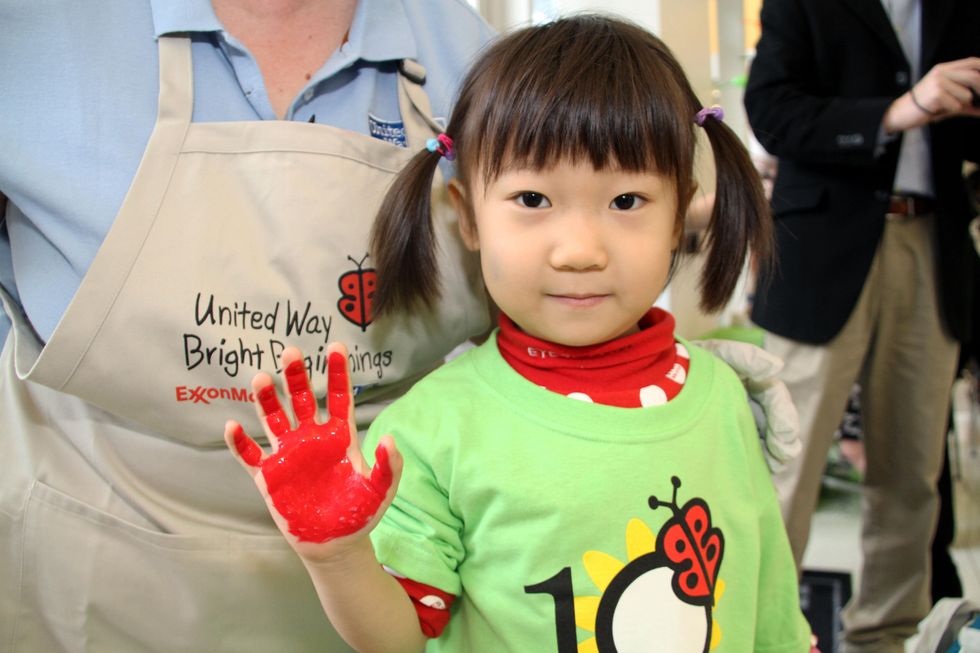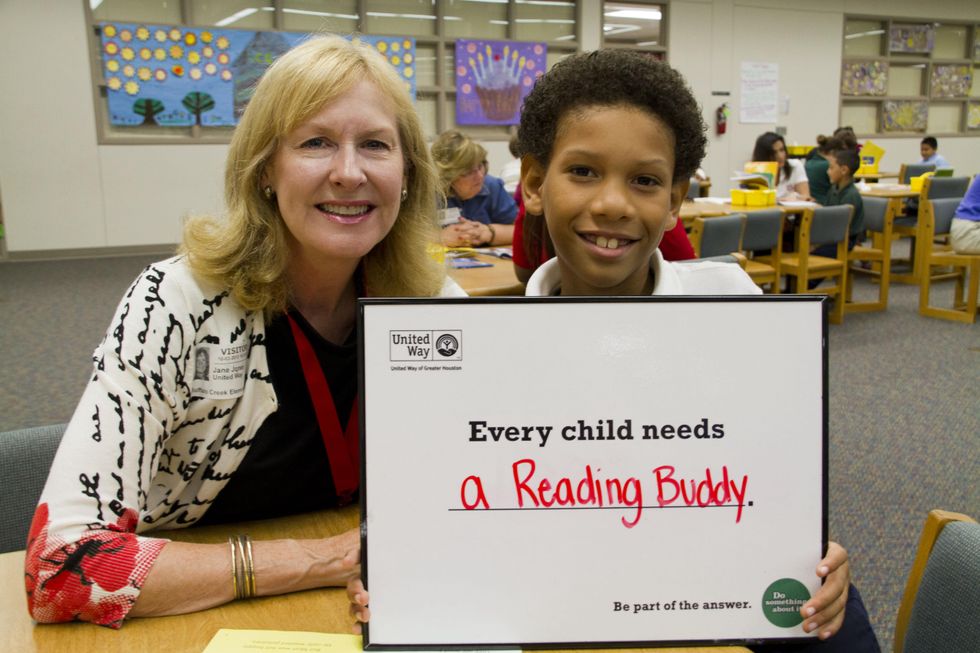A Strategic Focus
United Way empowers at-risk children to succeed
Every child deserves the opportunity to develop to his full potential. At least, that's how the United Way of Greater Houston sees it.
The nonprofit has long been committed to supporting Houston-area children and youth, investing more than $12 million every year in after-school programs, character development and leadership training, as well as tutoring and mentoring. But two years ago, United Way decided it needed to do even more.
Half of the children living in Harris County live in low-income families.
Here's why: One in four students in the Houston area fails to graduate from high school, while less than half of Houston's third graders have the reading skills necessary for success in fourth grade. Even more troubling, more than a third of children entering kindergarten lack the skills needed for lifetime learning and half of the children living in Harris County live in low-income families.
United Way has developed a strategic focus that supports the academic success of students. The focus aims to reach children at critical junctures in their education by using a systemic approach to help them stay on track and eventually graduate. It specifically targets early education, early-grade reading and summer learning loss. United Way believes that when children have a strong educational foundation, they become lifelong learners and make positive contributions to the workforce, which benefits the entire community.
"Houston's future depends on preparing today's school children to be the leaders of tomorrow, which is why United Way is so focused on helping children and youth obtain the education they need to succeed," said Anna M. Babin, president and CEO of United Way of Greater Houston.
"Houston's future depends on preparing today's school children to be the leaders of tomorrow, which is why United Way is so focused on helping children."
United Way has made a significant impact in early education, putting more than 5,000 Houston-area children on a path to success through United Way Bright Beginnings. United Way and ExxonMobil created the innovative United Way Bright Beginnings more than a decade ago to reach at-risk children during a critical time in their development. The program provides quality child care and developmentally-appropriate curriculum to low-income children so they are prepared to enter school ready to learn.
Research shows that early experiences shape whether a child's brain develops strong skills for future learning. In fact, 90 percent of brain development happens before kindergarten. At United Way Bright Beginnings centers, children are engaged in hands-on learning that enables them to achieve social, emotional, physical and cognitive milestones. As a result, these children demonstrate greater language abilities and higher math and reading skills by the time they enter school. They also have outperformed their peers on 45 of 51 achievement tests.
In 2012, United Way launched United Way Reading Together as part of its strategic focus on academic success. United Way Reading Together helps second and third graders become proficient readers. Research has shown that reading on grade level by fourth grade is a key academic indicator of success—and students who don't read proficiently by fourth grade typically don't catch up.
Unfortunately, many children are behind in reading because they lack access to books, which can fuel their desire to read. In middle-income neighborhoods, for example, there are 13 age-appropriate books to every one child. The corresponding ratio in low-income neighborhoods is one book for every 300 children.
United Way Reading Together connects students with adult reading buddies who help them develop important reading-related skills and build confidence. Each volunteer spends one hour per week, for a period of eight to 12 weeks, reading with a student. This extra attention and encouragement enables students to catch up. In the first year of United Way Reading Together, all of the 80 students who participated improved their reading skills.
"A number of my teachers are asking to replace students in United Way Reading Together because they have recently scored in the highest level of the HISD benchmark test after the first semester of the program," said the principal at Sutton Elementary.
United Way Reading Together has since expanded from three to five schools in the Houston and Spring Branch school districts and has nearly doubled its volunteer pool to 150 volunteers.
United Way recognized that summer learning loss also can deter academic success and took action based on the latest research, which shows that students typically score lower on standardized tests at the end of summer vacation than they do on the same tests at the beginning of summer vacation. That's because they are not involved in activities that reinforce academic skills during the summer. Students from low-income neighborhoods face the largest declines, while their affluent peers make slight gains.
Research shows that early experiences shape whether a child's brain develops strong skills for future learning. Ninety percent of brain development happens before kindergarten.
Last summer, United Way invested $250,000 in collaborative projects focused on decreasing summer learning loss and improving school-based transition. It also supported 75 book clubs throughout the Houston area that gave 1,500 books to children who might not otherwise have access to books outside of school.
In addition, United Way helped students learn and develop STEM (science, technology, engineering and math) skills through the Digital Game Design program. Students used their skills to design and engineer more than 1,400 original digital games. In another project, students used skits, songs and games to develop STEM skills. More than 70 percent of the students achieved a score indicating gains in the coming school year.
The success of United Way Reading Together and summer learning loss investments led to the roll out of United Way Learning Together in fall 2013. United Way Learning Together is a yearlong peer-to-peer mentoring program involving more than 200 students in seven elementary schools. Fourth and fifth graders have an opportunity to be student leaders as they tutor second and third graders whose reading skills are behind grade level.
United Way's strategic focus on academic success also includes parent education, providing them with the knowledge and tools to best participate in the academic success of their children.
Click here to learn how United Way Reading Together has helped Kenya achieve reading success.
At United Way Bright Beginnings centers, children are engaged in hands-on learning that enables them to achieve social, emotional, physical and cognitive milestones.


